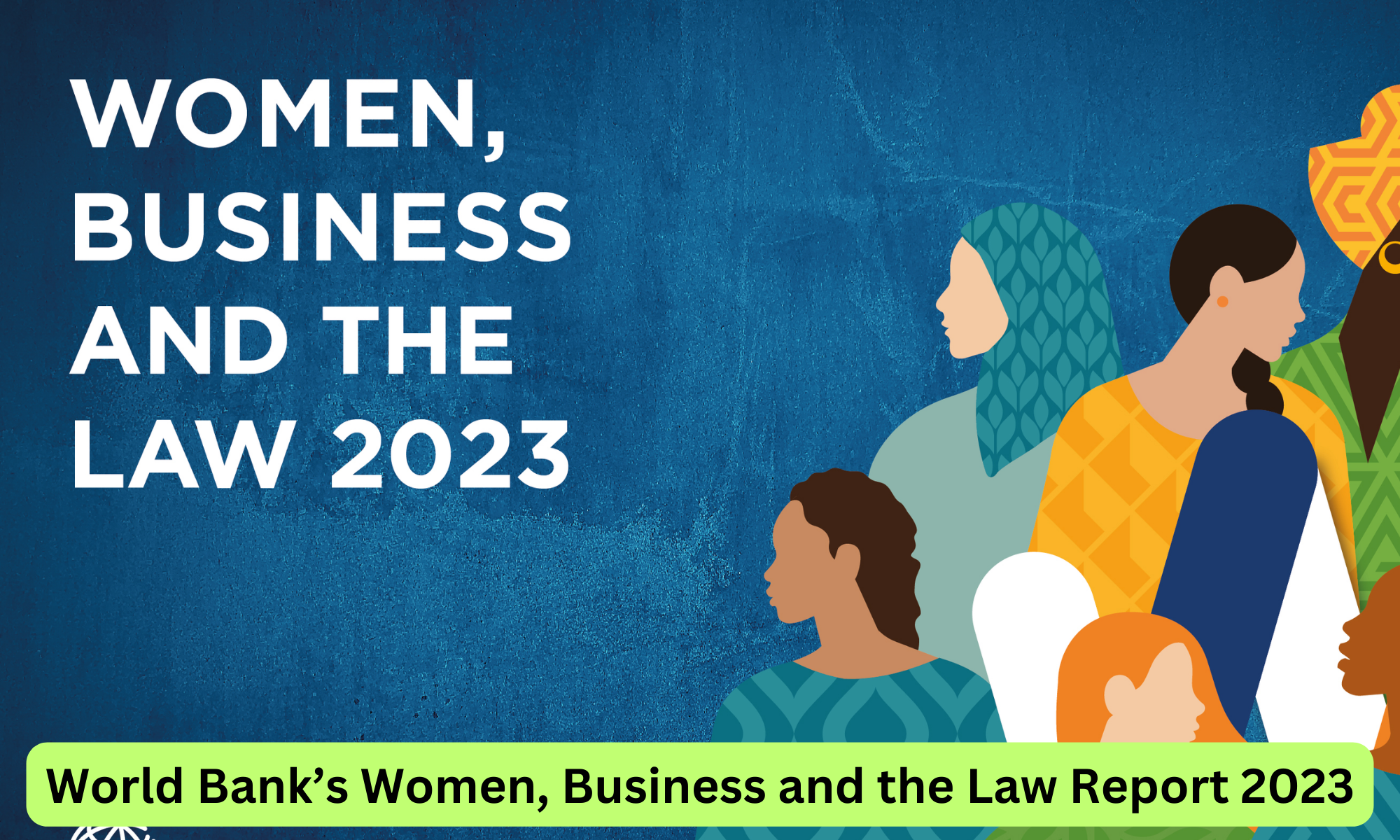World Bank’s Women, Business and the Law Report 2023
Economic growth and strength are boosted by gender equality, according to the World Bank’s Women, Business and the Law Report 2023. It increases labour force participation and results in a more effective allocation of resources. Women may engage more fully in the economy and realise their full potential when they have equal access to economic opportunities, which boosts productivity and growth.
Buy Prime Test Series for all Banking, SSC, Insurance & other exams
World Bank’s Women, Business and the Law Report 2023: Key Points
- Economic growth can also advance gender equality since it makes more money available for programmes and policies that support women’s involvement, such as those that encourage financial inclusion, health, and education.
- Financial stability frequently results in additional chances for women to work and launch enterprises, empowering and increasing their level of financial independence.
- But, merely having prosperous economic circumstances is insufficient to guarantee development towards equality.
- In order to ensure that both men and women benefit equally from economic growth, policymakers should endeavour to close gender gaps.
- Adopting laws and policies that support women joining and remaining in the workforce, such as parental leave regulations, equal pay for equal labour, and protection from discrimination and sexual harassment, is a crucial first step.
World Bank’s Women, Business and the Law Report 2023: Significance
It’s critical to boost women’s access to financing and productive assets so they may launch and expand their own businesses.
- Empowerment requires laws and policies that increase women’s autonomy at home and in society.
- Finally, it’s crucial to take into account social norms and attitudes that contribute to discrimination and gender bias that are ingrained in society.
Can women apply for jobs the same way males do? Is equal pay for labour of equal value required by law? Is it forbidden to fire pregnant employees? Does the law forbid gender-based discrimination in credit access? Do men and women retire at the same age? When the response is “no,” it prevents women from contributing fully to their economies and impairs their capacity to decide on matters of personal finance that are beneficial for them, their families, and their communities. Only 14 advanced economies, according to the most recent report, have legal gender equality in the areas assessed.
Mumbai Ranks at 37th Place Globally in Price Growth in Luxury Housing
Women, Business, and the Law report highlights:
- The Women, Business, and the Law report from the World Bank Group explores policies that have an impact on women’s opportunities as employers and entrepreneurs in 190 economies.
- The information provides quantitative, objective standards for the advancement of gender equality worldwide.
- The project aims to contribute to policy debates on repealing discriminatory laws and advancing women’s economic involvement.
- The most recent “Women, Business and the Law 2023” study offers a thorough evaluation of the 50-year progress made worldwide towards gender equality in the law.
- The average global score on the “Women, Business, and the Law” measure has increased by almost two-thirds since 1970, going from 45.8 to 77.1 points.
- The report also illustrates the crucial link between legal gender equality and women’s employment and entrepreneurship and updates the statistics to demonstrate the situation of women’s rights as of October 2022.
- In many nations, women still only have a small portion of the legal rights that men enjoy, and they are subject to legislative limitations that limit their ability to work or own a business throughout their lifetimes.
- In actuality, the pace of advancement towards gender equality has slowed to its lowest level in 20 years.
- The lowest number since 2001, only 18 economies have changed their laws since 2021 to promote gender equality in all areas assessed by Women, Business, and the Law.
Using case studies in nations including the Democratic Republic of the Congo, Kenya, So Tomé and Principe, South Africa, and Togo, the law team has begun examining the process of modifying laws. In order to inform future policy and hasten the transition to gender equality, more research is required to determine the factors that affect changes.
A crucial first step in boosting women’s economic empowerment globally is equal opportunity under the law. Women can no longer afford to put off achieving gender equality. The world economy also cannot.
Also Read: Elon Musk reclaims to the top, becomes richest person on the planet again




 Legendary Bengali Author Shankar Passes ...
Legendary Bengali Author Shankar Passes ...
 List of Dadasaheb Phalke Award Winners f...
List of Dadasaheb Phalke Award Winners f...
 Which Dance Form is known as the Ballad ...
Which Dance Form is known as the Ballad ...








